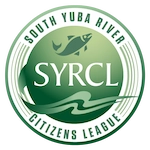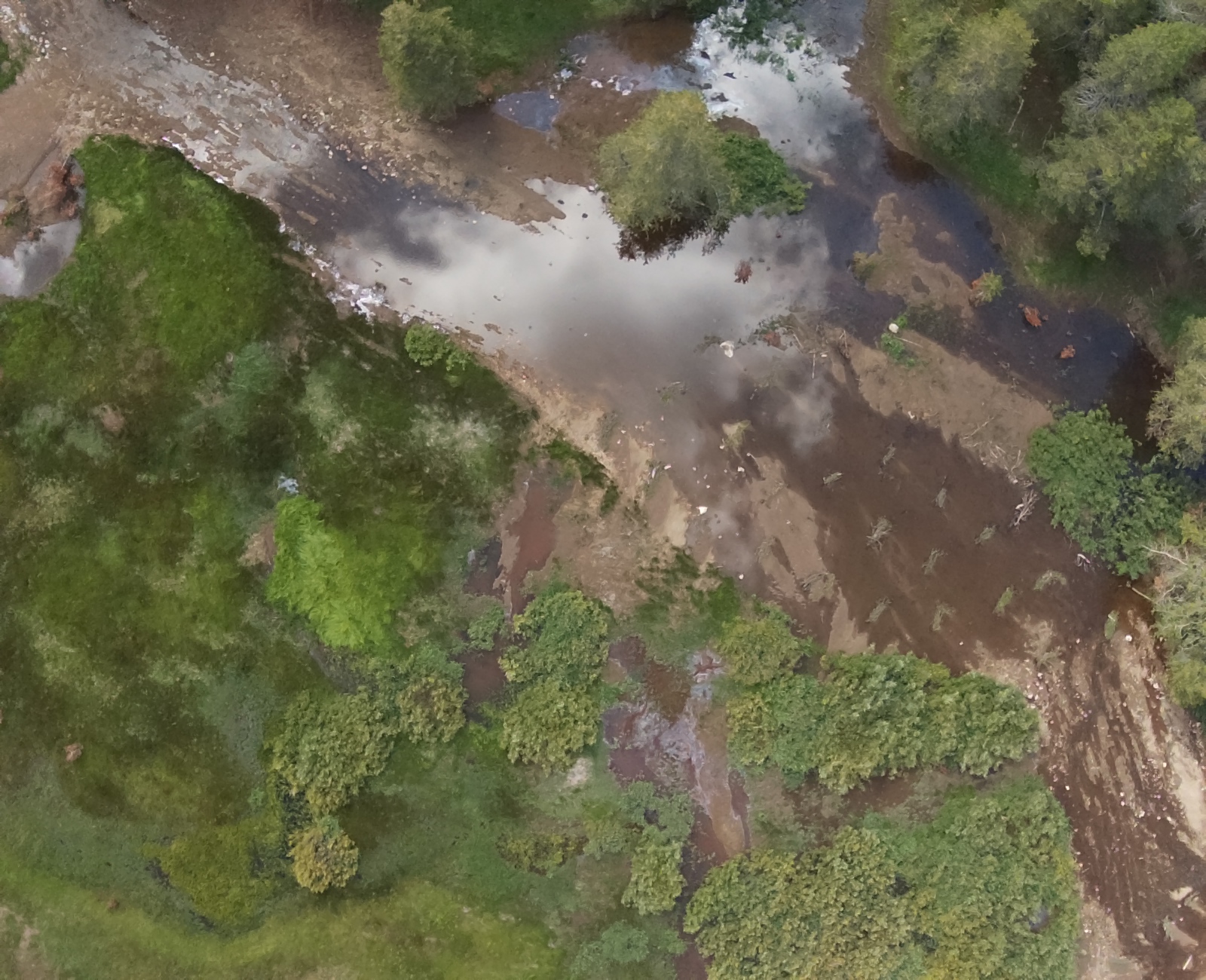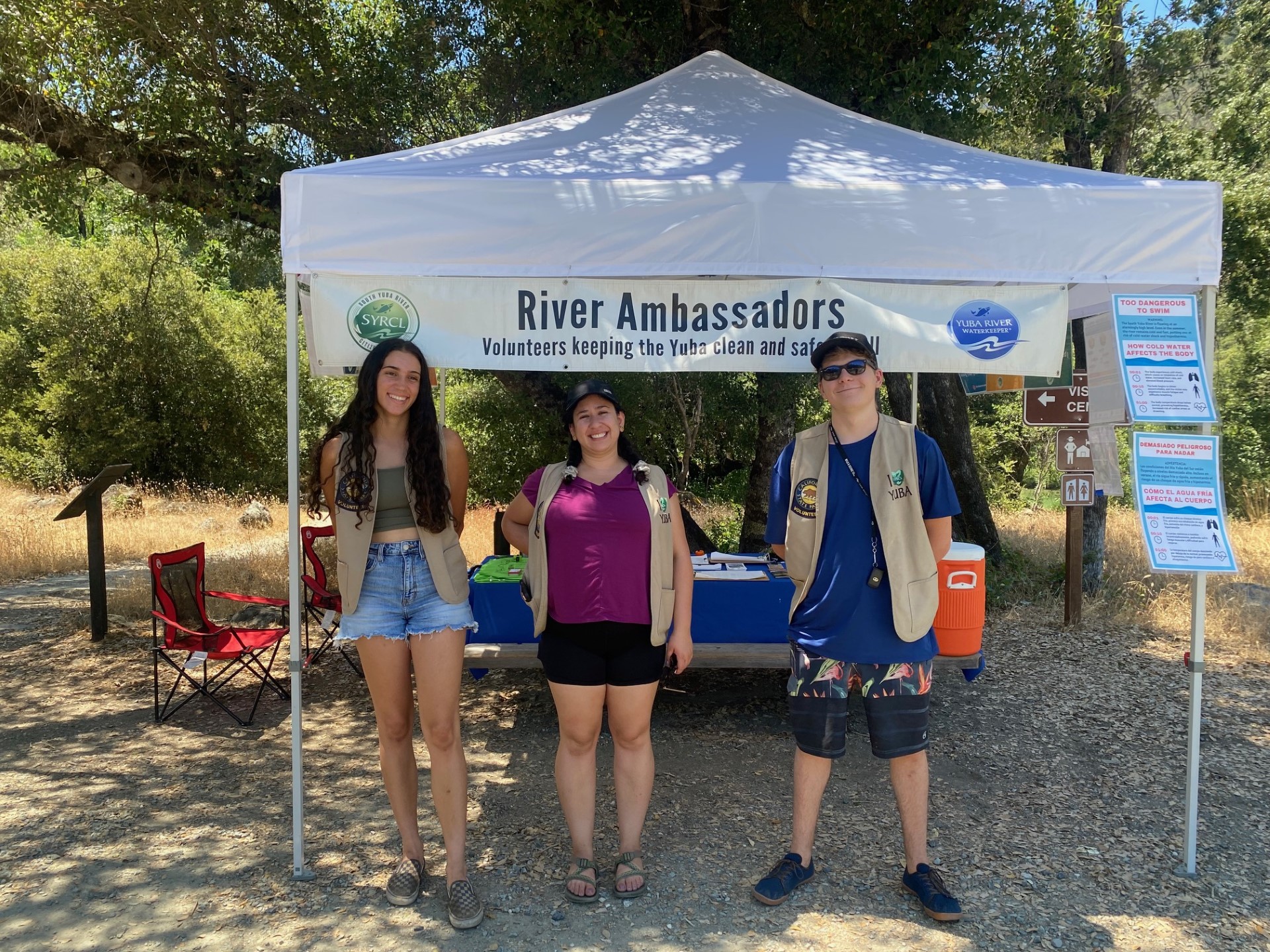SYRCL Volunteers Complete the 23rd Year of River Monitoring
SYRCL’s community-science driven River Monitoring Program has finished its 23rd year of monitoring the Yuba River watershed! Each Spring, for the past 23 years, SYRCL has trained a group of amazing and dedicated river-loving volunteers to collect scientifically credible data for water quality parameters — such as water temperature, dissolved oxygen, pH, conductivity, and turbidity — throughout the Yuba watershed.
Thanks to our volunteers, data is collected each month from March to November which allows SYRCL to monitor the health of the watershed and track any important changes that may occur over time. SYRCL’s River Monitoring Program is a prime example of a successful community science program. Training to become a River Monitor is free and open to all who are interested.
Contact Abby Messe at abby@yubariver.org if you’d like to become a volunteer River Monitor.

2023 Volunteer Stats:
- 23 years of SYRCL’s river Monitoring Program completed!
- 37 sites across the North, Middle, South, and Lower Yuba River
- 51 active volunteers accumulated 886 volunteer hours
- 1500 recorded water quality parameter measurements
Our water quality parameters include air and water temperature, specific conductivity, dissolved oxygen, pH, turbidity, E. coli, nitrates, and salinity. All our volunteers complete their river monitoring on the second Saturday of each month, helping us to take a snapshot of the watershed, evaluate any areas of concern, and examine specific influences on water quality.
Our data is available at RiverDB.org for anyone to look at and we encourage community members to check out the data throughout our watershed!

Boxplots display the distribution of data by highlighting its five-number summary: minimum, first quartile (25th percentile), median (middle value of data), third quartile (75th percentile), and maximum. Outliers are displayed as points outside the box and “whiskers.”
Water Temperature:

Water temperature is collected at all 37 river monitoring sites. Aquatic organisms are dependent on certain temperatures for their success and survival. Temperature also affects the oxygen content in the water, as cold water can hold more Dissolved Oxygen than warm water. A threshold of 20°C marks the upper range of water temperatures appropriate for native species that prefer cold water habitats, such as salmon and steelhead.
Dissolved Oxygen:

Dissolved Oxygen (DO) is also collected at all 37 river monitoring sites and is the amount of oxygen dissolved in the water. Most aquatic organisms need oxygen to survive and grow. Factors that affect DO are pollution, temperature, altitude, salinity, and mineral content. If DO drops below 7mg/L there may be negative biological effects on aquatic organisms such as the death of adult and juvenile fish, reduction of growth, and failure of fish eggs to survive.
E. Coli:

Out of the 6 sites where SYRCL tests for E. coli, Oregon Creek swimming hole had the highest E. coli count. No samples in 2023 surpassed the EPA contact recreation guideline of <320 MPN/100mL. We test for E. coli in the summer because this is when we typically see higher levels as increasing temperatures can increase bacterial growth.
What to Expect in the Coming Months
We would like to extend a big thank you to all the River Monitors who have volunteered this past year. We admire and value your time and commitment to helping us monitor our watershed, as we could not do this without you.
The first sampling of 2024 will be the weekend of March 9th.
Training to become a River Monitor and help us protect our Yuba River is free and open to all.
Contact Abby Messe at abby@yubariver.org if you’d like to become a volunteer River Monitor and help us protect our Yuba River watershed!
If you’re interested in reading about the previous year’s river monitoring, check out: SYRCL Volunteers Complete 22nd Year of River Monitoring • SYRCL (yubariver.org)
Did you enjoy this post?
Get new SYRCL articles delivered to your inbox by subscribing to our ENews.











